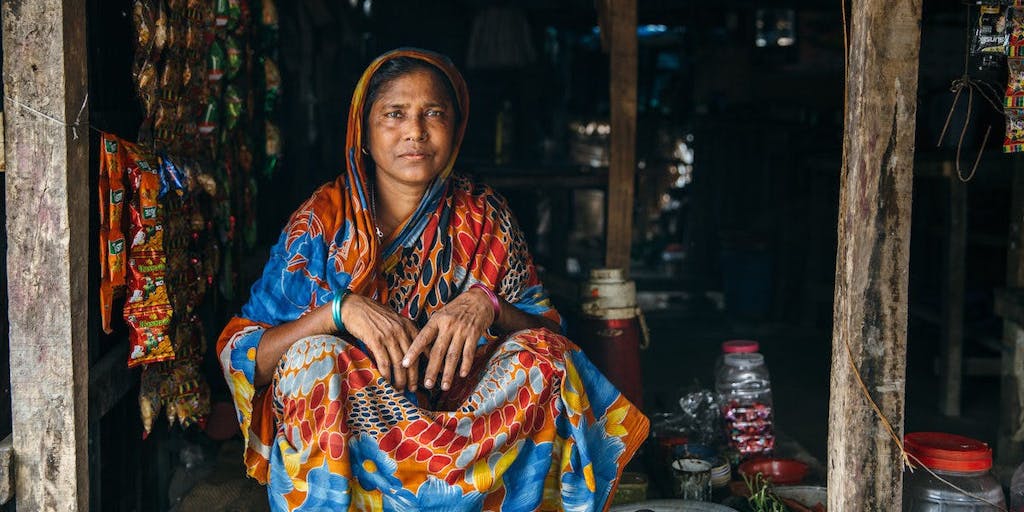With the world reeling from the COVID-19 pandemic, almost every business, organization, and industry is confronting some level of existential truth about how it delivers value and meets the needs of its customers. We must explore a “new normal.” The sooner we identify and understand the elements of this new normal, the better we will be at adjusting our work and delivering impact in fighting poverty.
Food for the Hungry (FH) is vigilant to the changing needs of the marginalized in a post-coronavirus world. This will require adjusting our strategy to account for the new normal of our industry, our donors, our beneficiaries, and the world around us. Any time we embark upon a strategy-setting process, one of the first assessments made is factoring in what we know and what we don’t know. Even on a personal level, having an inventory of these two categories of factors in hand allows you to chart a course for how you can succeed. For FH, that means exploring and understanding how the pandemic will affect systems, relationships, and lives, both directly and indirectly. As we press forward, we have begun formalizing our post-COVID-19 strategy.
Here are a few things we’ve discovered in identifying what we know and don’t know about the future of fighting poverty.

State of the Vulnerable: What We Know
Almost certainly, there will be more people in extreme poverty as a result of the COVID-19 pandemic. Unfortunately, this will mark the first time in over 20 years that the number of people living on less than $2 a day has increased, rather than decreased. Hidden in that tragedy is the fact that the efforts to eradicate extreme poverty were succeeding. Nonetheless, the pandemic has increased need and vulnerability in every country.
We also know that women and children will be more adversely burdened by the post-coronavirus world than men. Domestic violence, child marriage, gender-based violence, and other injustices are expected (if not already confirmed) to rise as a terrible implication of social distancing and stringent stay-at-home orders seeking to minimize the spread of the disease. These challenges–plus the expectation that the burden to economically recuperate will fall upon the shoulders of children and women–create a dire scenario for those who are already considered among the most vulnerable.
But it is not all gloom and doom. We also know that there are tools and systems in place to make an immediate impact. We have seen the effectiveness of Cascade Groups in bringing hope and newfound prosperity before the pandemic. Recently, we have been able to activate these existing, strong, flesh-and-blood social networks to be powerful conduits of knowledge sharing on ways to curtail the virus. We anticipate these proven methods to play a big role in how we walk alongside vulnerable communities as we move forward, together.
WHAT WE DON’T KNOW
Since the pandemic is moving at different speeds throughout the world, one thing we are monitoring is the resilience of communities economically, socially, and spiritually. When FH walks with a community, we ask them to think about worst-case scenarios that would threaten their everyday lives. Then, we work together to prepare as best as possible to mitigate the damaging impacts of that disaster. As FH communities experience the pandemic, either because the virus enters into their homes, or simply because the world around them suffers, we endeavor to learn important lessons about resiliency and how we can improve this facet of our work.

State of the World: What We Know
When it comes to the global impact of the coronavirus pandemic, one thing seems to be for sure. No one is spared from some sort of impact. It is affecting all geographies, socio-economic groups, demographics, and religious groups. The virus is a great leveler of the global society, to an extent we have not seen in generations. This means we are in uncharted territory. This single disaster simultaneously impacts our donors and partners, as well as those we serve. It also impacts the link between them: organizations like FH.
WHAT WE DON’T KNOW
While we know the virus and its secondary effects do not discriminate, we don’t know the extent to which all parts of our value chain will change. As an organization, we are praying for all of you, our donors and partners. We understand that the pandemic causes new and unforeseen challenges each day. We know that some of our donors may need to prioritize their resources to meet their family’s immediate needs. This is not a shameful choice but a product of our circumstances, and we are embracing the role God has given us. We are honored to serve, pray for, and walk alongside both our beneficiaries and our donors.
State of God’s Kingdom: What We Know
Our God reigns. His sovereignty over the world, our individual lives, and our collective endeavor to end poverty are unchanging. This also applies to the truths and values Jesus Christ preached about. He Himself walked the earth during uncertain times. Jesus taught in contexts of fear, strife, doubt, and unknowing. Ultimately, He gave us lessons on how to love one another despite the chaos. These are important facts available to us as we chart our course forward.
WHAT WE DON’T KNOW
God’s timing. We don’t know how long this will last, nor how God may use this to bring about His purposes. While on the cross, Jesus said His father, “not my will, but yours be done” (Luke 22:42). We do not know what God’s will is. But we will be faithful to serve the most vulnerable, as He has called us to for nearly 50 years.
Continue Reading:
How a Garden Became a Philippines Coronavirus Response


